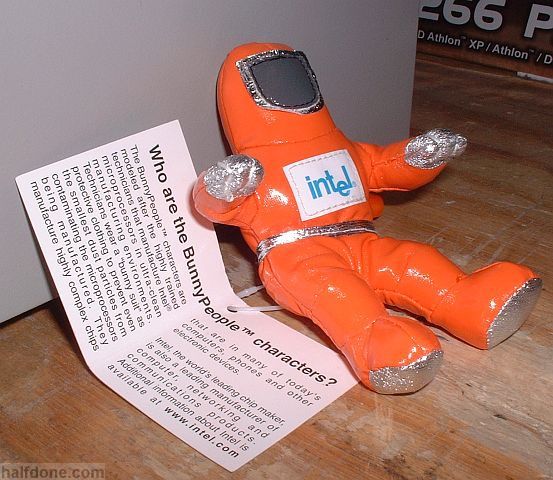 While I don't necessarily agree with everything he said, it's still a very interesting read. Comments of that blogpost was filled with comments on why AMD is (or isn't) technically superior, and why Apple should (or shouldn't) have chosen Intel. Technically superior or not, it has very little to do with Apple's choise of chip manufacturer.
While I don't necessarily agree with everything he said, it's still a very interesting read. Comments of that blogpost was filled with comments on why AMD is (or isn't) technically superior, and why Apple should (or shouldn't) have chosen Intel. Technically superior or not, it has very little to do with Apple's choise of chip manufacturer.Remember Steve Jobs' WWDC keynote? If we were to believe what he'd claimed, Apple's switch is largely due to IBM's inability (or unwillingness) to deliver competitive products, especially on the Notebook market. That is at least the technical reason behind the switch: they need something that moves faster than IBM PPC chips.
That said, once they've decided to move to x86 architecture, this problem is already a non-issue. X86 market is extremely competitive, dispite the huge difference in size between the two major players. Competition doesn't always drive innovation, but in the microprocessor market, it can at least drive clockspeed and energy efficiency, and that is all Apple needs right now. A fast cool CPU that they can put into their machine, a chip that they can keep ramping up new models with higher clockspeed. Everything else like scalability they can solve with Mac OS X
There is little technical reasons to flavor Intel against AMD. I can see quite a few business reasons to do so
- Availability: Intel is less likely to run into production and delivery problems than AMD. they're already supplying almost all of Dell's CPU needs. Now Dell sells about 9 billions worth of computers every year. If Intel can supply Dell, there's no reason they can't take care of Apple. AMD runs into supply issue from time to time, especially when they're trying to distribute to their international markets. They have a hard time allocating new products especially to international markets.
- Diversity: As DB mentioned, Intel is overall a better runned company, with diversified product-lines. This is more important than a lot of people realized: Intel's dominance include not only microprocessors, but NIC controllers, Wifi controllers, motherboard controllers and embedded chip market as well. Apple can obtain all the other components from one manufacturer. They don't have to, but the option is definitely tempting. The implication of simplification of supply chain alone would justify the switch.
No comments:
Post a Comment